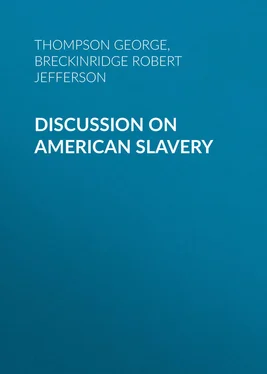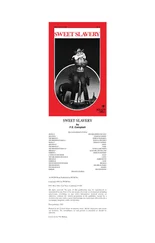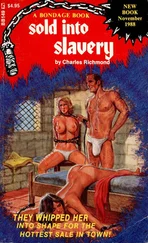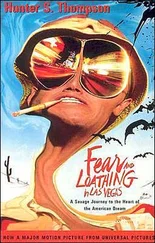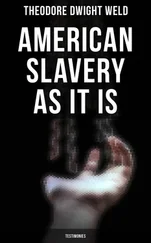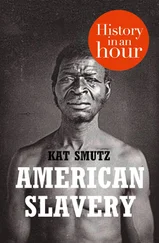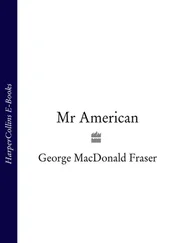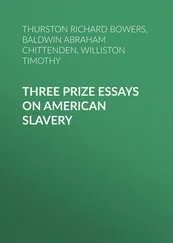George Thompson - Discussion on American Slavery
Здесь есть возможность читать онлайн «George Thompson - Discussion on American Slavery» — ознакомительный отрывок электронной книги совершенно бесплатно, а после прочтения отрывка купить полную версию. В некоторых случаях можно слушать аудио, скачать через торрент в формате fb2 и присутствует краткое содержание. ISBN: , Жанр: foreign_antique, foreign_prose, на английском языке. Описание произведения, (предисловие) а так же отзывы посетителей доступны на портале библиотеки ЛибКат.
- Название:Discussion on American Slavery
- Автор:
- Жанр:
- Год:неизвестен
- ISBN:http://www.gutenberg.org/ebooks/32500
- Рейтинг книги:4 / 5. Голосов: 1
-
Избранное:Добавить в избранное
- Отзывы:
-
Ваша оценка:
- 80
- 1
- 2
- 3
- 4
- 5
Discussion on American Slavery: краткое содержание, описание и аннотация
Предлагаем к чтению аннотацию, описание, краткое содержание или предисловие (зависит от того, что написал сам автор книги «Discussion on American Slavery»). Если вы не нашли необходимую информацию о книге — напишите в комментариях, мы постараемся отыскать её.
Discussion on American Slavery — читать онлайн ознакомительный отрывок
Ниже представлен текст книги, разбитый по страницам. Система сохранения места последней прочитанной страницы, позволяет с удобством читать онлайн бесплатно книгу «Discussion on American Slavery», без необходимости каждый раз заново искать на чём Вы остановились. Поставьте закладку, и сможете в любой момент перейти на страницу, на которой закончили чтение.
Интервал:
Закладка:
Mr. BRECKINRIDGE said, it was not easy to conceive of circumstances that were more embarrassing than those in which he was placed this evening. They had already taken for granted all that had been said and done on one side of the question; their minds had been already made up to oppose those conclusions to which it was his purpose to bring them. Their affections and feelings had long been engaged to his opponent in this cause; and all that he could say would necessarily have little effect in changing what he would not hesitate to call those unhappy opinions, which were long ago formed against him. Another cause of his embarrassment was, that he would be rejudged of all he might say here. What he said would be approved by one party in America, but would be disapproved of by another. In the United States they were differently situated from what the people were in this country. Here the people seemed now united on this subject, but in America they were split up into a great number of different parties, whose opinions and feelings were arrayed against each other in as great a measure as it was possible to conceive. Whatever, therefore, he might say in this country, would be disapproved of by many in the United States, while nothing was more certain than that, what was said by his opponent, would the more commend him to his friends on the other side of the Atlantic; and nothing he could say would probably lower him in the good opinion of his friends here. Hence arose the difficulty of the situation in which he (Mr. B.) found himself placed, and his unusual claim upon their patience in the course of the discussion. Still he should be unworthy of his country, he should be forgetful of the power of truth, he would have little trust in God, if he was not ready to espouse the cause which he believed to be right; and more especially if he was not ready, before a Scotish and a Christian audience, to defend the principles he adopted and avowed. He had no desire to attempt a mitigation of their hatred to slavery; and if, at a future time, he should meet in America with any one now present, he would prove to them by the friendship of those who loved and respected him, and the opposition of those who did not, that he hated slavery as much as any one of those present could do. It was said by one of the ancients, 'I am a man: I consider nothing that relates to man, foreign to me.' It was a true and noble sentiment. The fate of the most hopeless might be theirs if power could make it so; and their condition might have been that of the poorest wretch on earth if God had not smiled upon them and their ancestors as he had done. He did not wish them to interfere with slavery in America. They might interfere, but the question was, how were they to do so? He wished in the course of the discussion to bring before them facts to show, that if they did at all interfere with slavery in America, it must be done as between individuals, not as a national question. That, whatever they did, they do as Christians, not as communities. That they must not, for a moment, look upon it as a question of rival power and glory, as a question between Great Britain and America. If they did so in the slightest degree, their chance of success was gone for ever. In the prosecution of the question, they should not allow themselves to be identified in their efforts with any party in America, in politics, in religion, or metaphysics; more especially, with a small and odious party as they had done to a deplorable extent. They should not identify themselves with a party so small as not to be able to obtain their object, and so erroneous as not to deserve success. Whatever they did should be done meekly, and in the spirit of the gospel; they should not press the principles of the gospel with the spirit of a demon, but with all the sweetness and gentleness of the gospel of peace. These were the principles which he intended to endeavor to impress upon their minds by details which he would adduce in the course of the discussion. It was nothing more than just to the audience that they should know, that they should understand it distinctly, that as far as regarded his opponent, he neither was nor could be any thing more to him or his countrymen than as an individual who had identified himself with certain parties and principles in America. Neither he nor the Americans could have any object in underrating or overrating him. America could have no desire to raise him up or to pull him down. It is not, it cannot be any thing to America what any individual is, or may be, in the eyes of his own countrymen. The King of England is known to America only as the King of Great Britain; if he ceased to be the King of that kingdom, he was to them no more than a common individual. Let it not be supposed that either he or America had any wish, even the most remote, to break down or injure the well earned or ill earned reputation of his opponent. They looked upon him only with reference to his principles, and had no personal motive on earth in reference to that gentleman. Let them not, therefore, think that in any remarks he might make, or charges he might bring forward, he had any intention of implicating his opponent as being solely responsible for these results. He called in question, not the principles of a particular individual only, but those also of a party in America, to whom he would have to answer when he returned to that country. Having said thus much, he would now proceed to the question before them, but would previously make a few preliminary remarks, which he thought necessary to enable them to come to a proper understanding of the subject. He did not think it necessary to trace the progress of the great cause to the present moment. For forty years they had suffered defeat after defeat – yet these defeats only strengthened their cause, even in this country, till they had arrived at a given point. He would not wish to hurt the feelings of a single individual now present, but he was sure he spoke the feelings of all in America, when he said that the great day of their power to do good, as a nation, was to be dated from the passing of the Reform Bill. From that period, they started in a new career of action, both at home and abroad. The sending out of agents was one of the great lines of operation attempted upon the Americans. This the Americans complained of as having been done in an imprudent and impossible way, and sure to meet with defeat. They have sent out agents to America who have returned defeated. They admit they were not successful, though they say they retreated only, that they were not defeated. They have failed – they admit they have failed in their object. One of these agents on his return made certain statements as to the condition of the slaves in America; and as to the state of the churches in the United States, which implicated not only the great body of Christian ministers of the country, but the government, and the people of America, except a small handful of individuals. If, as was admitted, the number of pastors in America was twelve to fifteen thousand, and only one thousand had embraced these views, were they anything but a small party? While yet the whole nation was denounced as wicked – and the wrath of Heaven invoked against the country. It was only a very small handful that came in for a share of the praise of his opponent; and the sympathies here were invoked, on the assumption of principles which it was his object to prove false and unfounded. What could be the cause of such an anomaly? that those principles which are said to be loved and admired here, are repudiated there to the extremity of pertinacious obstinacy? This cause it would be his duty to point out; first, he would say what perhaps no one would believe, that the question of American slavery, is in its name not only unjust, but absurd. There was, properly speaking, no such thing as American slavery. It was absurd to talk of American slavery, except in so far as it applied to the sentiments of what was the minority, although he would say a large minority, which tolerated slavery. It was not an American question. In America there were twenty-four separate republics; of these, twelve had no slaves, and twelve of them tolerated slavery. Two new states had recently been added to the Union, and God speed the day when others would be added, till the whole continent, from the Atlantic to the Pacific was included in union, carrying with the union, Liberty and Independence. Of the two states which were lately added, one was a slave state and the other free. Of the twelve free, independent, sovereign states of America to which he had alluded – one, Massachusetts, had, for a longer time than his opponent had lived, not tolerated slavery. There were no slaves in Massachusetts, Connecticut, Rhode Island, Vermont, New Hampshire, Maine, New York, New Jersey, Pennsylvania, Ohio, Indiana, or Illinois, and in four of them there never had been a slave. Eight of them, of their own free will and choice, abolished slavery without money and without price. By the influence of the Spirit of God, and the influence of divine truth, they had totally abolished slavery. Of the twelve states, at least four, Ohio, with a million of inhabitants, Indiana, Illinois, and Maine, never had a slave. Since 1785 till this hour, there had not been one slave in any of these states. These twelve either never had slaves or had abolished slavery without any remuneration. These states contain seven million out of the eleven million of the white population of the Union, and nearly two-thirds of the territorial extent of the republic as now peopled. And when we remember that they have stood as they now do for the last twenty years, as it was now more than twenty years since slavery was abolished, how could they be charged with the responsibility of the existence of slavery in other states, or be charged with fostering slavery which they were the first people upon earth to abolish, and the first to unite with other nations in putting down the slave trade as piracy. This he was aware would be denied; but though Wilberforce had labored in the cause for twenty years, the American constitution had fixed a limited time for the abolition of the slave trade, and the moment the twenty years had elapsed, the Congress did abolish it; and this was in the same month, and some days before the Abolition Bill had passed through Parliament. Thus, America was the first nation on earth which had abolished the slave trade, and made it piracy. If we judge by the number of republics which tolerate no slavery – if we judge by the number of American citizens who abhor slavery, it will be found not to be an American question, but one applicable only to a small portion of the nation. If he wished to prove that the British were idolaters, he could point to millions of idolaters in India, under the British Government, for every one in America who approved of slavery. If he wished to prove the British to be Catholics, and worshippers of the Virgin Mary, he could point to the west of Ireland, where were one thousand worshippers of the Virgin Mary for every one in America who did not wish slavery abolished. If he were to return to America, and get up public meetings, and address them about British idolatry, because the Indians were Idolaters, or on British Catholicism, because many of the Irish worshipped the Virgin Mary, would not the world at once see the absurdity and maliciousness of the charge; and if he heaped upon Britain every libellous epithet he could invent – if he got the wise, the good, and the fair, to applaud him, would not the world see at once the grossness of the absurdity. And where, then, lay the difference? The United States Government have no power to abolish slavery in South Carolina – Britain can abolish idolatry throughout its dominions. It was absurd to say it was an American question. America, as a nation, was not responsible, either in the sight of God or man, for the existence of slavery within certain portions of the Union. As a nation, it had done every thing within its power. The half hour having now expired, Mr. B. sat down; and
Читать дальшеИнтервал:
Закладка:
Похожие книги на «Discussion on American Slavery»
Представляем Вашему вниманию похожие книги на «Discussion on American Slavery» списком для выбора. Мы отобрали схожую по названию и смыслу литературу в надежде предоставить читателям больше вариантов отыскать новые, интересные, ещё непрочитанные произведения.
Обсуждение, отзывы о книге «Discussion on American Slavery» и просто собственные мнения читателей. Оставьте ваши комментарии, напишите, что Вы думаете о произведении, его смысле или главных героях. Укажите что конкретно понравилось, а что нет, и почему Вы так считаете.
